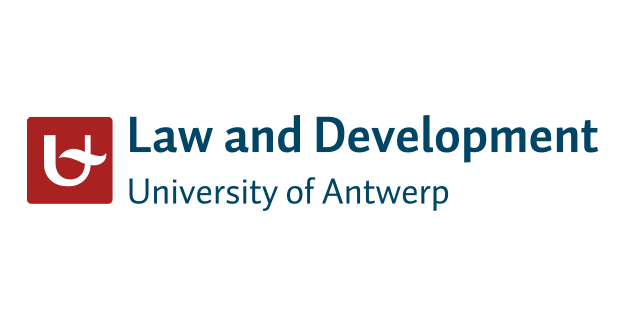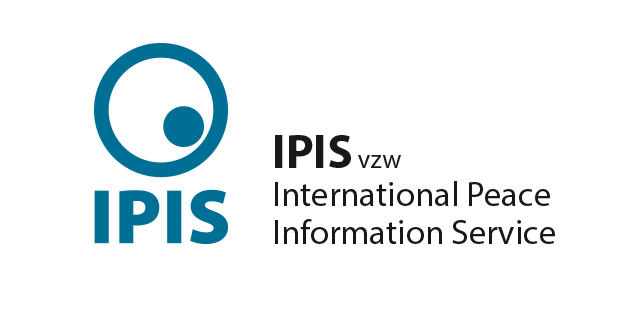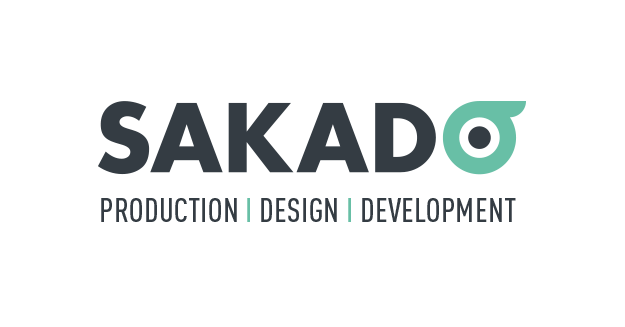2 Human Rights Guidelines for Organisations
What are these guidelines?

Tool one presented the binding rules that protect human rights. These are general principles and standards that entitle human beings to be treated with dignity and without discrimination. This tool presents the non-binding guidelines that seek to promote and facilitate compliance with human rights law.
These guidelines are categorised as soft law because of their non-binding character and because they do not follow a specific legal procedure to be approved. The UN Human Rights Council created an intergovernmental working group on transnational corporations and other business enterprises with regard to human rights. This aimed to reach an international legally binding instrument to regulate business activities and their impact on human rights, but no treaty has yet been adopted.
Soft law is increasingly being used because its lack of binding character can facilitate consensus among the stakeholders. This tool presents soft law guidelines because they are a complementary framework to human rights law. They seek to foster compliance with human rights law by increasing awareness of the relevance of hard law regulations and by guiding users in their implementation and enforcement. These guidelines have been adopted by international organisations or private bodies, or are self-regulatory, such as in the case of codes of conduct.
These guidelines cover diverse topics, and most of them seek to promote human rights compliance in general. This tool has three parts:
First, general soft law is presented from international organisations of which Belgium is a member state. Even if a document has not been formally adopted as a binding regulation in the framework of these organisations, it has a certain level of authoritative character as it has been approved with the intervention of national authorities of the member states. Soft law produced by Belgian authorities is also included here. This part is organised in the same way as tool one, starting with the general guidelines and then presenting the soft law related to specific categories of human rights.
Second, guidelines are presented that have been released by private entities (non-state organisations), such as non-governmental organisations (NGOs) or professional associations that seek to adapt general guidelines to the purposes of their field. Although some may be the result of multi-stakeholder initiatives, the general guidelines and principles are explained here, while tools 5 and 6 contain the sector-specific multi-stakeholders initiatives.
Finally, this tool includes codes of conduct as a main instrument of self-regulation by public and private organisations. They follow corporate social responsibility (CSR) standards and include human rights hard law and soft law (this tool).
- General state-related soft law guidelines
-
- UN System
-
Various UN agencies have been extensively discussing the best way to reach a satisfactory level of human rights compliance by member states and by private actors. There have been several attempts to foster this compliance but none of them have concluded in a binding treaty. Two general comments of the UN Committees on the rights of the child and on economic social and cultural rights, which have an important authoritative character in interpreting the corresponding UN treaties, have identified concrete state commitments in the framework of business and human rights. These general comments are important because they are the result of a stakeholder consultation process in several regions and communities. Besides these interpretative comments, several soft law proposals have also been released.
The United Nations Guiding Principles on Business and Human Rights: Implementing the United Nations ‘Protect, Respect and Remedy’ Framework (UNGP)
The UNGP are the most important and comprehensive guidelines on business and human rights. They were unanimously approved by the UN General Assembly in 2011. These guidelines are a revised version of the UN “Protect, Respect and Remedy: A Framework for Business and Human Rights” of 2008. The UNGP guide businesses and other organisations in evaluating and adapting their activities to the binding rules and principles that seek to protect, respect and fulfil human rights. This comprehensive framework has been organised into three pillars: state responsibility, corporate responsibility, and access to remedy. These pillars seek to cover the main aspects of the human rights duties of the state and of private organisations and persons.
Firstly, states are expected to regulate corporate responsibility regarding the duties to respect and – in some cases – to protect and fulfil human rights.
Secondly, corporate responsibility is developed mainly by means of Corporate Social Responsibility (CSR), a self-regulatory framework used by organisations to respect social and environmental standards and, more recently, to address human rights inside the organisation or in their relations with their partners.
Thirdly, the state, businesses and other organisations should take the necessary measures to provide access to remedy, so as to prevent, correct and remedy actual or potential adverse impacts of human rights. The state remedy mechanisms available in Belgium can be consulted in the Booklet published by the Federal Institute for Sustainable Development (FIDO/IFDD). The operational grievance mechanisms are also discussed in this toolbox.
Some principles are necessary to understand this toolbox. Firstly, organisations should respect human rights, which means that they should not cause or contribute to adverse human rights impacts and address these impacts when they occur. Secondly, organisations should prevent or mitigate adverse human rights impacts linked to their operations, products, services or partners, even if they have not contributed to those impacts (principles 11 and 13). Thirdly, organisations should implement policies and processes according to their particular circumstances, such as a policy commitment on respect for human rights, as well as other processes such as human rights due diligence (HRDD)and complaint mechanisms. Most of the initiatives listed in this toolbox have been developed according to the UNGP in order to implement these principles.
The UN Global Compact Principles (1999)
Before the UNGP, the UN Global Compact Principles was launched as the most important multi-stakeholder initiative agreed upon by governments, corporations and labour organisations. It promotes compliance in diverse areas such as human rights (principles 1-6), environmental protection (principles 7-9) and the fight against corruption (principle 10). The Guide to Corporate Sustainability (2014) aims to explain the main features of corporate sustainability to stakeholders, as well as how the Global Compact principles can be implemented.
Besides the UNGP and the UN Global Compact, other specific guiding principles have been released in the framework of the UN. These are listed here:
This guide orients organisations in implementing a human rights policy within their own structure. As suggested by the UNGP, organisations should release a ‘statement of policy’ in line with the International Bill of Human Rights and other treaties. The guide highlights that this policy statement does not define the scope of the responsibility of the organisation, but seeks instead to define its policies and processes to identify, prevent, mitigate adverse human rights impacts.
Guidelines on trade and investment activities
Trade and investment agreements are important because they are part of the legal framework of business activities of organisations. These guidelines emphasise that when states conclude trade and investment agreements, particularly with developing countries, they must ensure that human rights law is respected and enforced. These agreements are complex and interconnected regulations with human rights and environmental protection. Therefore, the UN and the UN Global Compact have released various guidelines to guide the state and private organisations in understanding and implementing human rights law in trade and investment activities. They also guide users in implementing some mechanisms described in this toolbox, such as human rights due diligence and impact assessments and self-assessment compliance. Some of these guidelines are included here as general references:
These UN guidelines provide a roadmap for a human rights impact assessment by states. If the assessment concludes that some clauses of the agreement are incompatible with human rights obligations, the state parties should amend the trade and investment agreement, include safeguards, mitigation or compensatory measures, or terminate the agreement to avoid human rights violations. These guidelines also encourage states to protect vulnerable groups and to preserve their regulatory independence to protect human rights.
These UN guidelines systematise existing legal/political procedures in one assessment. States must refer to the normative content of human rights obligations in force and, if possible, incorporate human rights indicators into the assessment and avoid regressive policies. In principle, prior impact assessments are a duty of states when they negotiate trade and investment agreements. However, the guidelines are also an indicative procedure to assess the impact of the activities of organisations when they perform human rights due diligence (HRDD).
State-investor contracts are particularly used for costly activities such as resource exploration or exploitation (oil, gas or mining); large agricultural projects; infrastructure projects (construction of highways, railways, ports); or public utilities development and operation (water and sanitation systems, electricity, etc.). These UN guidelines propose 10 principles to integrate the management of human rights risks into investment project negotiations, and recommend a checklist for the parties when negotiating these agreements.
The UN Global Compact has also released the Principles for Responsible Investment (PRI) initiative (2010) that seeks to incorporate environmental, social and governance (ESG) factors into investment decisions, to manage risk and sustainable returns.
- OECD
-
The pioneer document is the OECD Declaration and Decisions on International Investment and Multinational Enterprises (1976) which encouraged governments to promote transparent international investment and highlighted the active role of multinational corporations in economic and social progress. The review of 2011 resulted in the Guidelines for Multinational Enterprises, which integrated social policy and sustainable practices into corporate management. These are recommendations for responsible business conduct addressed to multinationals operating or based in participating OECD countries.
The application of these guidelines is supported by the National Contact Point (NCP) in Belgium. The OECD Guidelines include a human rights chapter, in line with the UNGP, and recognise that organisations are bound by international human rights law and by national rules of countries where they operate. Therefore, they must respect human rights, prevent and mitigate adverse human rights impacts, delineate a policy commitment to respect human rights, and perform human rights due diligence. This should be appropriate to their size and nature, the context of their operations, and the severity of the risks of adverse human rights impacts. When these corporations cause damage, victims or stakeholders can use the remedy mechanism. Besides the chapter on human rights, these guidelines also recommend respect for and protection of labour and environmental rules and standards.
- Guidelines to respect and protect human rights in conflict zones
-
The International Committee of the Red Cross (ICRC) released the Guidance on the rights and obligations of business enterprises under international humanitarian law as part of its mandate derived from the Geneva Conventions. These guidelines inform private organisations about their rights and obligations under international humanitarian law. In addition, the Toolkit for Addressing Security and Human Rights Challenges in Complex Environments (2014), released by the Geneva Centre for the Democratic Control of Armed Forces and the ICRC, guide organisations in their relations with host governments and public security forces.
In addition, the PRI initiative and the UN Global Compact launched their Guidance on Responsible Business in Conflict-Affected and High-Risk Areas (2010) to support businesses in the implementation of responsible business practices in conflict-affected and high-risk areas. In particular, it seeks to support the state enforcement of national and international laws.
- European level
-
Council of Europe
The Council of Ministers of the Council of Europe (CoE) has released the Recommendation on the implementation of the UNGP by member states, that seeks to guide governments in implementing the UNGP at the national level, particularly regarding their human rights responsibilities in the business context.
European Union
The European Union (EU) has been the most dynamic regional organisation in adopting standards and binding rules on human rights compliance. This tool complements tool 1 by introducing the main guidelines that support EU human rights law.
This guide was produced by GLOBAL CSR and BBI International and financed by the European Commission (Directorate-General for Enterprise and Industry). It seeks to orient small and medium-sized enterprises (SMEs) in implementing the UNGP. It introduces the basic concepts of human rights, and further explains the six steps for performing human rights risk assessments and the mechanisms that should be implemented in this respect. It also includes a questionnaire to identify the most common human rights risks for SMEs and a summary of the most common negative human rights impacts caused by businesses.
This handbook is aimed at effective CSR implementation by SMEs, but it can also be useful for other organisations, such as cooperatives or non-profit organisations. The aim is to assist advisors of these organisations in supporting CSR implementation, which includes human rights issues. The handbook includes a toolkit for SME advisors on CSR, the CSR roadmap for SMEs (emphasising global sustainable value chains), new business models and communication, transparency and interaction.
- National guidelines
-
At the national level, several initiatives have promoted the application and enforcement of human rights law. These initiatives are also in line with the UNGP, the OECD Guidelines, the ILO Tripartite Declaration and other guidelines from international organisations. The National Action Plan for Business and Human Rights sets out the actions that the state is developing to increase all actors’ awareness of their human rights duties. At this moment, Action 3 has already been developed, as well as the booklet on state-based judicial and non-judicial mechanisms, which is available for victims of human rights adverse impacts.
In addition, the National contact point in Belgium for the OECD Guidelines, based in the Ministry of Economy, SMEs, Entrepreneurs and Energy, provides advice and support in implementing the OECD Guidelines.
Regional level
At the regional level, initiatives in Flanders are guided by the Vision 2050 - A long-term strategy for Flanders, which is focused on sustainable development. Other initiatives are also focused on CSR, such as MVO Vlaanderen, as well as the ‘International CSR Handbook – Start with the UN Sustainable Development Goals to Strengthen your Company’s Strategy’ from CIFAL and Flanders Investment and Trade.
Wallonia has launched the Responsabilité sociale des entreprises-Wallonie, while Brussels has launched the Responsabilite sociale Bruxelles-capital. However, no concrete guiding principles on human rights have been released by these regions.
-
Special protection of vulnerable populations
- Besides the general guidelines, other non-binding declarations and guidelines also seek to protect vulnerable populations, including the following:
- UN Declarations
-
Declaration on the Rights of Persons Belonging to National or Ethnic, Religious and Linguistic Minorities (1992)
This declaration promotes the enforcement of various UN human rights treaties that protect the national or ethnic, cultural, religious and linguistic identity of minorities within their territories - in particular, the right to enjoy their own culture, to profess and practise their own religion, and to use their own language in private and in public without discrimination. It also calls on states to take the necessary measures to support minorities in enjoying their rights, except where specific practices violate national law and are contrary to international standards.
The United Nations Declaration on the Rights of Indigenous Peoples (2007)
This declaration is a comprehensive international framework that protects the rights of indigenous peoples. The Declaration defines the duties of states in protecting indigenous peoples’ territories, labour rights (including protection from modern slavery), social and economic rights (including the access to benefit sharing, related to their traditional knowledge and genetic resources) and their right to access an effective remedy if they are affected by adverse human rights impacts.
- The International Labour Organisation (ILO)
-
The ILO has also released several guidelines on how to respect and protect labour rights and related social rights.
The Tripartite Declaration of Principles concerning Multinational Enterprises and Social Policy (MNE Declaration, 2017).
This declaration aims at guiding economic organisations in complying with the binding ILO agreements, promoting social policy and implementing responsible labour practices. The declaration integrates the UNGP into the ILO’s area of action.
More recently, the ILO released two additional guidelines:
- the Declaration on Social Justice for a Fair Globalisation (2008)
- and the Global Job Pact (2009), oriented towards increasing awareness about social justice by enforcing international labour standards.
- Children’s Rights and Business Principles (2012)
-
These principles are the result of a multi-stakeholder initiative of UNICEF, UN Global Compact and the NGO Save the Children. The aim is to promote the corporate responsibility to respect and support children's rights in diverse environments and to address adverse impacts on children’s rights. The principles also promote voluntary actions to advance children’s rights, such as strategic social investment, advocacy and public policy engagement, partnerships and collective action.
- Soft law to support the fight against trafficking in human beings
-
At the European level, the CoE/Greta (Group of Experts on Action against Trafficking in Human Beings) has released a Handbook of good practices for implementing the CoE Convention on Action against Trafficking in Human Beings (2016).
For the EU, the fight against trafficking in human beings for economic exploitation is a priority. The "EU anti-trafficking action 2012-2016” presents the comprehensive EU legal and policy framework to address trafficking in human beings. Two guidelines have been released to support the protection of victims of trafficking. Firstly, The Guidelines for the Identification of Victims of Trafficking in Human Beings are particularly intended for consular and border authorities. They are also useful for organisations when they are confronted with this situation. Secondly, The EU Rights of Victims of Trafficking in Human Beings, aims to increasing awareness about the rights of vulnerable groups victims of human trafficking, particularly women and children. These rights include (emergency) assistance, health care, labour rights, and access to justice and a remedy.
- Environmental rights
-
- UN System
-
In the area of environmental protection, the UN has also been active in adopting non-binding guidelines that promote sustainable development. In 1992, the UN Conference on Environment and Development (UNCED) (the Rio de Janeiro Earth Summit) adopted two important guidelines on sustainable development:
The Rio Declaration on Environment and Development
This declaration emphasises that human beings are at the core of sustainable development, that civil society should participate in environmental issues, that mechanisms to claim remedy should be implemented, that the precautionary principle should be enforced and that impact assessments should be implemented. The ILA New Delhi Declaration of Principles of International Law Relating to Sustainable Development (2002) further systematises these principles of sustainable development.
The Agenda 21 - Global Programme of Action on Sustainable Development
This programme promotes a global partnership to foster sustainable development in developing countries, particularly related to issues such as poverty, consumption patterns, human health and sustainable human settlement, and the protection of vulnerable groups.
The 2030 Agenda for Sustainable Development and the corresponding Sustainable Development Goals (SDGs)
In 2000, the UN Millennium Declaration launched the Millennium Development Goals (MDGs) as an attempt to integrate respect for human rights and sustainable development goals. Standards were proposed for evaluating progress on these goals. The 2030 Agenda further highlights the need for economic activities to respect and, if possible, protect human beings and the environment, and support the fulfilment of peace, prosperity and global partnership. It proposes 17 goals and 169 specific targets built on the principles adopted in "The Future We Want" on the occasion of the Rio+20 Conference of 2012.
The SDGs increased awareness of the accountability of private actors for respecting (and if possible, protecting and fulfilling) human rights. Goal 6 “Ensure availability and sustainable management of water and sanitation for all”, for instance, has specific targets for reducing pollution and the release of hazardous chemicals and materials, as well as increasing water use efficiency. Goal 8, “inclusive and sustainable economic growth, employment and decent work for all”, encourages states to eradicate forced labour, modern slavery and human trafficking. Goal 12, “sustainable consumption and production”, connects the sustainable management and efficient use of natural resources on all levels of the supply chain to the elimination of adverse impacts on human health and the environment. Goal 17, “Partnership for the goals”, seeks a universal, non-discriminatory and equitable multilateral trading system among countries.
The Framework principles on human rights and the environment (2018)
These principles were released in the Report of the UN Special Rapporteur on the issue of human rights obligations relating to the enjoyment of a safe, clean, healthy and sustainable environment. They summarise the main human rights obligations relating to the enjoyment of the right to a healthy and sustainable environment, and guide stakeholders in implementing these obligations. These principles are not exhaustive and do not create new obligations.
The World Bank Environmental and Social Performance Standards (2012)
The World Bank Group, and particularly the International Financial Corporation (IFC), launched these standards to guide organisations on environmental and social risk and impact assessments. The IFC also has a guide for human rights impact assessment and management, but to date, it is not mandatory for IFC clients. More recently, the IFC Sustainability Policies and Standardselaborated six sub-components to support organisations that use IFC resources: sustainability framework; environmental and social performance standards; environmental, health, and safety guidelines; corporate governance framework, and corporate governance methodology.
The CEO Water Mandate (Tool 2)
The UN Global Compact developed the CEO Water Mandate to promote sustainable water consumption, conservation and sanitation within organisations and throughout value chains, in line with SDG 6, as well as management of organisations’ own water risks.
- European level
-
Regarding the protection of the environment, the European Commission has developed a series of Information sheets and fact sheets on the environmental policy areas and the Multi-Annual Work Programme (MAWP) 2017 – 2020. These seek to fill the knowledge gaps and implementation deficiencies of the “Environmental Liability Directive”. They also seek to inform stakeholders on preventing and remedying environmental damage.
- Non-state actors’ guidelines
-
NGOs and other organisations have also released several guidelines to support application of hard and soft human rights law. Some of them are mentioned here for reference.
- Amnesty International
-
Amnesty International’s Human Rights Principles for Companies (1998) were released before the UNGP, but are important as they sought to guide corporations in the identification of human rights risk in their activities.
- The Centre for Research on Multinational Corporations (SOMO)
-
This NGO (SOMO) has released several guidelines for responsible conduct by business organisations.
The Multinationals and Conflict International principles and guidelines for corporate responsibility in conflict-affected areas provides a mapping of guidelines released in this area and the negative impacts that organisations may cause on environmental or human rights, as well as impacts which may exacerbate existing conflicts or spark new ones.
How to use the UN Guiding Principles on Business and Human Rights in company research and advocacy. This practical guide aims at supporting civil society organisations in using the UNGP, as well as support local communities, workers and other stakeholders in protecting and claiming their rights. The ultimate aim is to indicate when and how an organisation can be held accountable for its responsibility to respect human rights.
Corporate Responsibility Instruments explains the main existing guidelines in this respect, namely the OECD Guidelines for Multinational Enterprises, the United Nations Global Compact, and ISO 26000 Guidance on Social Responsibility. This comparison clarifies the similarities and differences between the three instruments.
Engaging the Private Sector to End Human Trafficking: a New Resource Guide for NGOs was published by La Strada International and SOMO. This guide supports and informs NGOs on human trafficking.
- Oxfam
-
The Oxfam Perspective on the UN Guiding Principles, as well as Doing Business with Respect for Human Rights: A Guidance Tool for Companies (2016) by Shift, Oxfam and Global Compact Network Netherlands, provide concrete and practical cases in order to better understand the application of the UNGP in diverse contexts. More information can also be found on the website www.businessrespecthumanrights.org
- The International Bar Association Business and Human Rights Guidelines 2016
-
These guidelines seek to raise awareness among judges and lawyers on the duty of organisations to comply with human rights rules and standards, and on how to apply them in legal practice. It is oriented towards the management of legal risks, which should include human rights compliance. This guide also recognises the increasing role of transnational soft law that supports the application of national and international human rights hard law, and aims to assist lawyers in advising their clients on this complex framework.
- Codes of Conduct
-
Codes of conduct have been designed as a self-regulation tool for public and private organisations over the last decades. They are promoted by international organisations, consumer groups and NGOs, and are central to CSR. Their aims are diverse and interconnected. They establish the CSR policy of the organisation, including the human rights policy. They adapt the binding and non-binding CSR and human rights rules and standards to the particular situation of the organisation and its activities. They can address regulatory gaps and implement or complement compliance mechanisms. They can promote CSR and human rights enforcement, and can also be used for leverage with other partners and actors. Most MNEs, NGOs and public institutions have a corporate code of conduct.
The growth of codes of conduct for self-regulation is a response to the lack of a binding international instrument that applies to non-state organisations. The UN released the draft UN Code of Conduct on Transnational Corporations (1983) to guide transnational corporations in the self-regulation of their activities in accordance with international standards. Later, the United Nations Conference on Trade and Development (UNCTAD) also released a Draft International Code of Conduct on the Transfer of Technology (1985). Neither has been adopted by the UN General Assembly, but they still serve as a model for organisations.
The ILO and the OECD, through their guidelines mentioned above, also promote the adoption of codes of conduct and voluntary compliance with international binding rules and standards. UNCTAD has also released the Set of Multilaterally Agreed Equitable Principles and Rules for the Control of Restrictive Business Practices (1981). This promotes preferential treatment for developing countries and disincentivises restrictive practices that can endanger competition and indirectly affect human rights, such as an abuse of dominant market positions or discriminatory policies. Most codes of conduct adopted up to now have been based on these three guidelines. International organisations have also support the drafting of the codes of conduct, including through bodies such as the Multinational Enterprises and Enterprise Engagement Unit of the ILO.
The second pillar of the UNGP, on the corporate responsibility to respect human rights, integrates human rights issues into the concept of CSR and promotes self-regulation initiatives to adopt human rights commitments voluntarily through codes of conduct. The UNGP recommend that businesses (but also valid for other organisations) express their commitment to respect human rights in a statement of policy approved at the highest level of the organisation. Usually, this policy statement is incorporated into codes of conduct and expresses the human rights expectations of workers, partners and other stakeholders. The policy statement should also be reflected in operational policies and procedures.
Several multi-stakeholder initiatives also promote the integration of human rights policies and compliance statements into codes of conduct. Some private initiatives have released models and guidelines for drafting a code of conduct. Deloitte, for example, has released guidelines on this topic that can be consulted here: Suggested Guidelines for Writing a Code of Ethics/Conduct.




